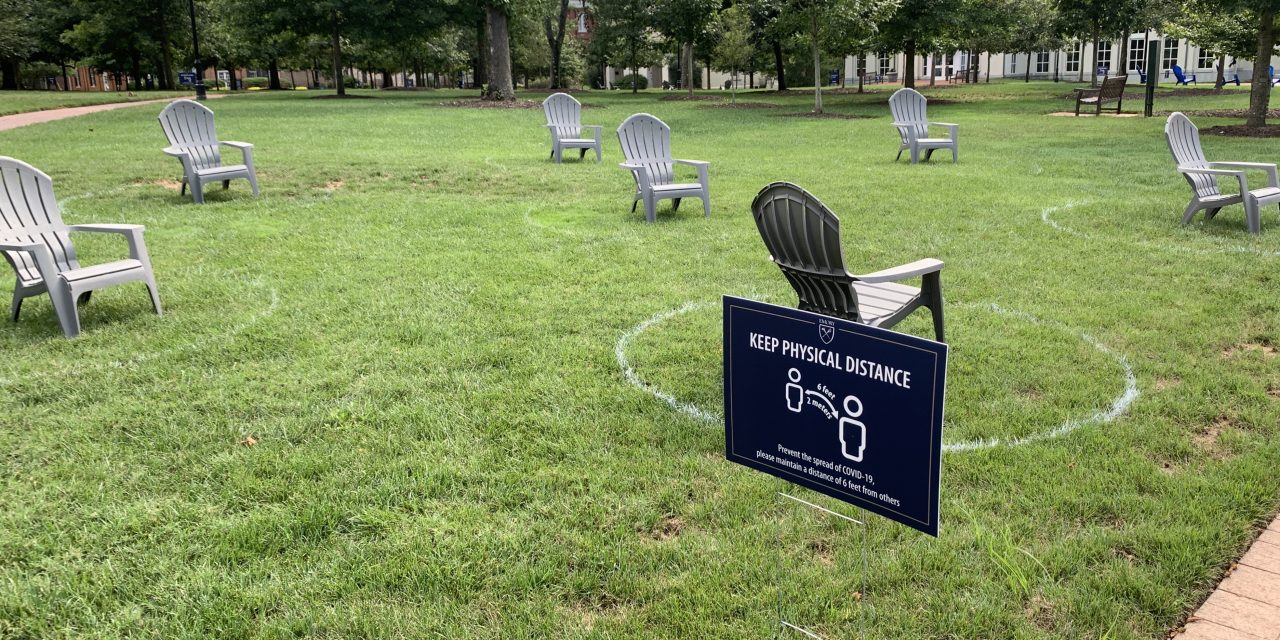Georgia will expand vaccine eligibility to new groups on March 15, including adults 55 years old and over, people with disabilities and “individuals aged 16 years and older with certain medical conditions that increase their risk of severe illness from COVID-19,” according to the state’s Department of Public Health website.
These new guidelines follow the loosened vaccine eligibility requirements from March 8, when Georgia added pre-K and K-12 teachers, “adults with intellectual and developmental disabilities and their caregivers” and “parents of children with complex medical conditions” as eligible groups.
Since March 8, Emory has offered a form on the Emory Forward website where students, faculty and staff can self-attest to belonging to one of the eligible groups, allowing them to register for a vaccine appointment.
Georgia changed its vaccine rollout process on Feb. 25, abandoning the tier system that outlined the order in which different groups would become eligible to receive a COVID-19 vaccine. Emory had to quickly adjust its distribution process after the announcement, Associate Vice President and Executive Director for COVID-19 Response and Recovery Amir St. Clair said on March 8.
“We had not been planning [to use a self-attestation form] in the past because that was not part of what the state had prescribed as it would do,” St. Clair said. “But when the state changed, Emory pivoted to make sure that all eligible University populations … now have a process that helps facilitate them, verifying their eligibility and then moving through the notification process.”
Having the tier system in place allowed the University vaccine planning group to create a “planning matrix” that allowed Emory to plan for distributing the vaccine to various groups once they become eligible, St. Clair explained.
Preparing for fall
With the goal of allowing all students, faculty and staff back on campus this fall, Emory has been planning how to operate safely at full capacity for months, St. Clair said.
“We know that testing will continue to be a prominent and viable tool in our ability to detect transmission, interrupt transmission and provide the level of safety and support to our students who might be sick,” St. Clair said.
The University’s goal is to ramp up to a 30,000 per week testing capacity by summer to provide enough tests for a full campus population in the fall.
The planning also includes ensuring enough quarantine and isolation capacity, providing sufficient parking and transportation, instituting proper cleaning protocols in campus facilities, looking into how many people can safely share space in classrooms and residence halls, and determining how to provide vaccines for students who haven’t yet received one by the time they return to campus.
“The surge definitely highlighted what is needed; what we have in place that’s working well,” Executive Director of Emory Student Health Services Sharon Rabinovitz said. “The work is already being done with the lens that it’s going to be scaled up.”
State begins distribution of Janssen COVID-19 vaccine
The U.S. Food and Drug Administration issued an emergency use authorization for the Janssen COVID-19 vaccine, produced by a subsidiary of Johnson & Johnson, on Feb. 27.
The Janssen vaccine requires only one dose, as opposed to the currently available Moderna and Pfizer vaccines which require two doses.
Georgia Gov. Brain Kemp announced last week that the state will receive an initial shipment of about 83,000 Janssen vaccines, expected to arrive sometime this week.
Georgia intends to use the initial shipment of the new vaccine for teachers.
Initially, Emory plans to distribute the Janssen vaccine “in the same way that the Moderna and the Pfizer vaccines are being used,” St. Clair explained.
However, how the Janssen vaccine is distributed may change depending on the outcomes of the initial rollout.
“There are differences in terms of logistics and operations as it relates to the vaccine that as we learn, we may adjust the distribution model depending on what we learn is most efficient,” St. Clair said. “What we do in terms of our distribution in May or June, as we start to learn about the operational needs of the vaccines, it may pivot or change.”
The Janssen vaccine is about 66% effective in preventing moderate to severe disease, and none of the individuals who received the vaccine in clinical trials were hospitalized due to COVID-19 four weeks after receiving the shot. The Moderna vaccine is 94.1% effective after two doses while the Pfizer vaccine is 95% effective after two doses, according to the Centers for Disease Control and Prevention (CDC).
“As soon as you’re able to get a vaccine, get the one that’s offered to you,” St. Clair recommended. “All three vaccines are significantly effective at the three most important aspects, preventing death, preventing serious illness and preventing hospitalizations.”
CDC releases new guidelines for fully vaccinated individuals
The rollout of the Janssen vaccine and Georgia’s expansion of eligibility groups coincided with the release of new guidance from the CDC for those who have already received a vaccine.
Under the new guidelines, the CDC says it is safe for vaccinated individuals to gather indoors without masks and to gather with low-risk people from the same household who have not been vaccinated.
The CDC still advises against gathering with people from multiple households, visiting with people who are at high risk of severe COVID-19 or attending large gatherings of any kind.
Latest cases
This week, Emory reported 37 new COVID-19 cases, 28 students and nine staff members. This includes three cases at Fleming Hall on the Oxford campus, two cases at Jolley Residential Center at Oxford and three cases at Clairmont Undergraduate Residential Center.
Madison Hopkins (23C) is a quantitative sciences and creative writing major from Charlotte, North Carolina. She is interested in pursuing biology research and volunteers as an assistant in the Gerardo lab at Emory. In her free time, she enjoys reading and writing fantasy and science fiction.




